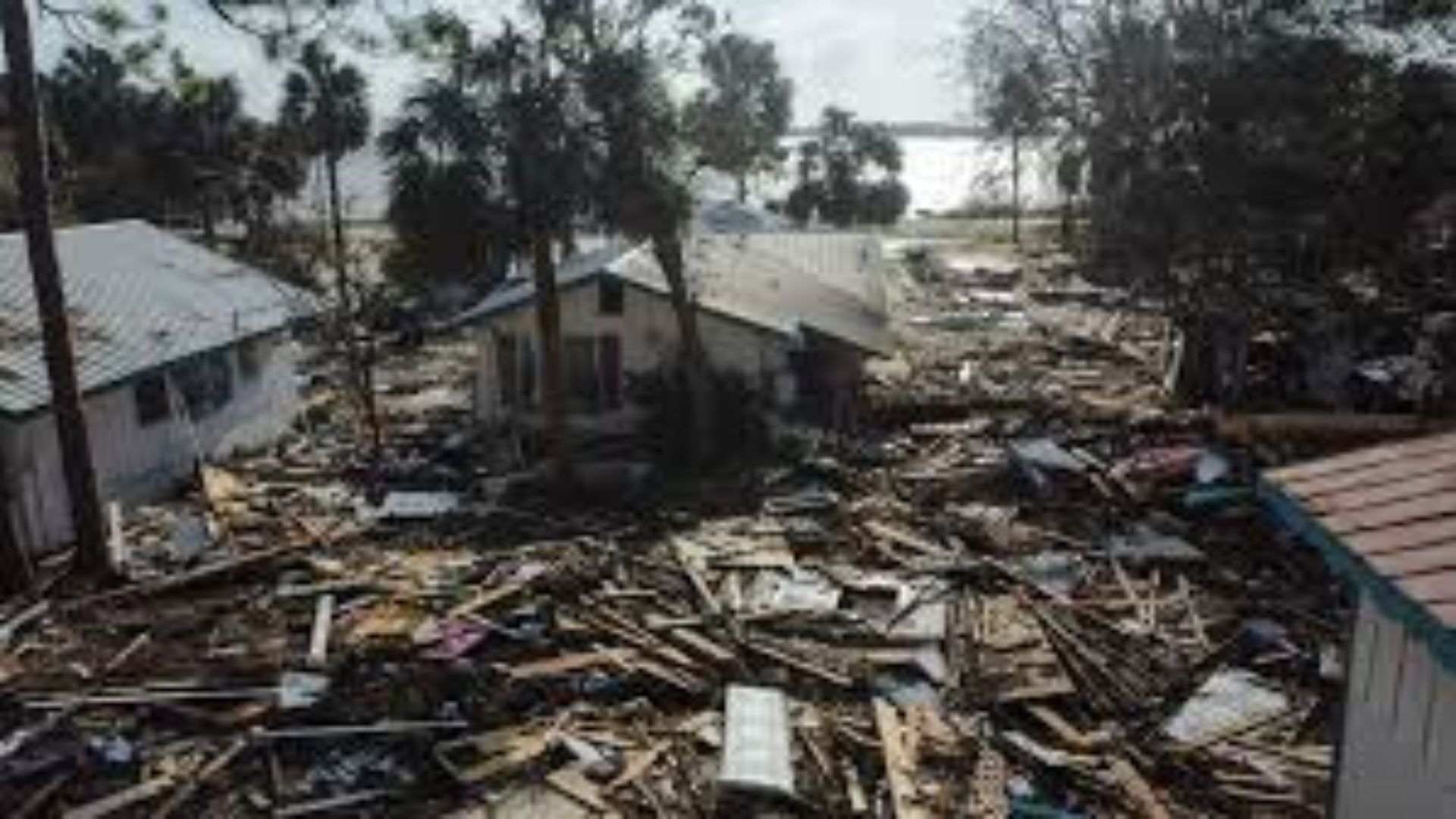Hurricane Helene, a Category 4 storm, made landfall late Thursday in Florida’s Big Bend region with winds reaching 140 mph, leaving a trail of devastation and loss across the southeastern U.S. The storm, one of the most powerful to hit the region in recent years, has caused widespread destruction, displaced thousands, and left at least 64 people dead. Millions remain without power, with extensive recovery efforts underway.
Janalea England, a Steinhatchee resident, described the heartbreaking situation as she turned her fish market into a donation hub for neighbors who lost everything. “I’ve never seen so many people homeless as what I have right now,” she said, reflecting on the overwhelming impact on her community.
Widespread Damage Across Multiple States
After slamming into Florida, Helene moved rapidly through Georgia, where Governor Brian Kemp noted, “It looks like a bomb went off,” following an aerial survey of the damage. The storm then weakened but continued to cause torrential rains and widespread flooding across the Carolinas and Tennessee, cutting off entire areas. Western North Carolina faced landslides and road closures, isolating the region, and prompting dramatic water rescues.
One of the most striking rescues took place in East Tennessee, where patients and staff from a rural hospital were evacuated by helicopter from a rooftop. In Asheville, North Carolina, flooding devastated parts of the city, and local officials expressed concerns over communication issues caused by downed cell towers. Residents, like Mario Moraga, are still dealing with the damage: “There’s no cell service here. There’s no electricity,” he shared.
Federal Response and Catastrophic Flooding
President Joe Biden called the devastation “overwhelming” and pledged federal assistance for recovery efforts, approving a disaster declaration for North Carolina. The storm caused record-breaking floods across the region, with some areas, such as Spruce Pine, receiving more than 2 feet of rain in just a few days. In Atlanta, the city recorded 11.12 inches of rain in 48 hours—the most in over a century.
Helene’s toll is staggering, particularly in South Carolina, where 25 deaths have been confirmed, making it the deadliest storm since Hurricane Hugo in 1989. The total economic impact is expected to be immense, with Moody’s Analytics estimating between $15 billion to $26 billion in property damage, while AccuWeather suggests total damage could reach up to $110 billion.
Evacuations and Long-Term Recovery
Thousands of residents evacuated before the storm hit, with further rescues taking place as floodwaters overtopped dams, including one in North Carolina featured in the movie “Dirty Dancing.” Helicopters and boats have been essential in evacuating people trapped in flooded homes. In Newport, Tennessee, resident Jonah Wark described the terrifying experience of waiting too long to evacuate before being rescued by boat.
Florida’s Gulf Coast was particularly hard-hit, with nine people drowning in their homes in mandatory evacuation zones. Governor Ron DeSantis acknowledged the grim reality of the situation, saying, “If you had told me there was going to be 15 feet to 18 feet of storm surge… I would have assumed we would have had multiple fatalities.”
Resilience and Hope Amid Devastation
Despite the widespread destruction, many residents are stepping up to help one another. In Perry, Florida, cars lined up at a free food distribution site early Saturday, as thousands remain without power or basic supplies. “We’re making it one day at a time,” said Sierra Land, who arrived with her children and grandmother after losing everything in the storm.
As the cleanup begins, many fear that climate change is making storms like Helene more frequent and destructive. With warmer ocean temperatures, hurricanes are intensifying more quickly, posing greater risks to coastal communities. Helene, the eighth named storm of this year’s Atlantic hurricane season, is a stark reminder of the increasing power of such natural disasters.
As recovery efforts continue, the full scale of the devastation is still being assessed. Utility crews are working tirelessly to restore power to millions of homes and businesses, while search-and-rescue teams from 19 states and federal agencies work to provide aid to affected communities.
The aftermath of Hurricane Helene will take months, if not years, to fully recover from, but the resilience of communities across the Southeast offers hope in the face of such overwhelming challenges.







